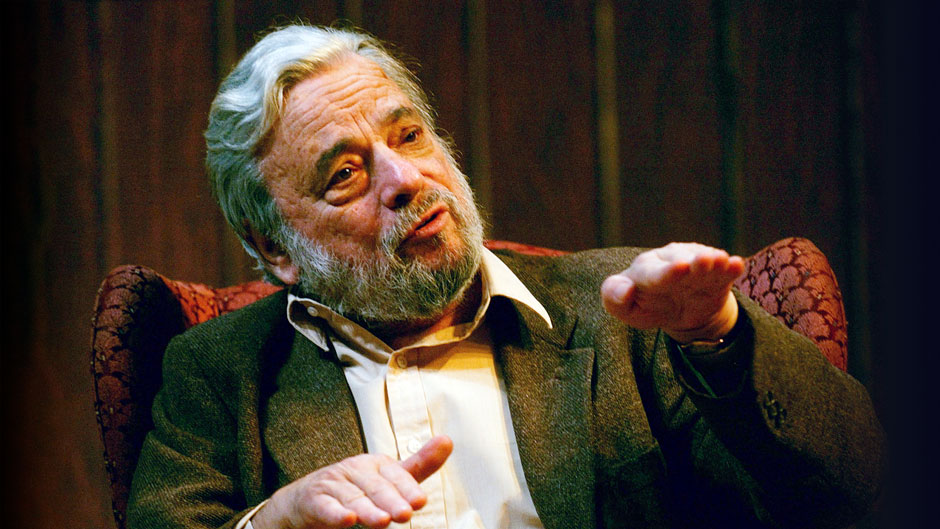The entertainment industry is mourning the loss of a legend.
Stephen Sondheim passed away on Nov. 26 at age 91, leaving a legacy as one of theater’s most influential composer-lyricists. Some of Sondheim’s best-known works include “West Side Story” (1957), “A Funny Thing Happened on the Way to the Forum” (1962), “Company” (1970), “Follies” (1971), “A Little Night Music” (1973), “Sweeney Todd” (1979), “Merrily We Roll Along” (1981), “Sunday in the Park with George” (1984), and “Into the Woods” (1987). Film adaptations of some of his works introduced his lyrical masterpieces to a new generation of audiences. The Steven Spielberg adaptation of “West Side Story” will open in movie theaters on Dec. 10.
The University of Miami Theatre Arts Department recently performed one of Sondheim’s most popular plays, “The Frogs” (1974), which marked their first performance after a hiatus of more than a year. Two of the University’s leading theater faculty members share how Sondheim’s career influenced both their profession and the talented students who they are teaching.
David Williams, senior lecturer
“Not a day goes by in the last 30-odd years of my teaching or directing that I do not think about, quote from, or demonstrate something that Stephen Sondheim wrote. It seems to me, he, like Shakespeare so many hundreds of years ago, thoroughly considered all possible implications of what it meant to be human, alive, and dealing with the impossibilities of our existences. There never is a moment of superficiality in either of these titans’ work. Both men were able to put into words stories that work as high art, magical comedy, and deep philosophical debate. Mr. Sondheim wrote words on par with Mr. Shakespeare’s but then added music to thoroughly and theatrically support his words that simply has no equal.
I, like many in the theater world, have felt punched in the gut by the news of the loss of this great man, but I take great comfort in knowing that the unparalleled work he left behind is always there to call upon, to listen to, and to dream of new ways of interpreting.
Sondheim will always be with us as long as there is a need for art that is not superficial, that deals with what it means to have humanity and can strike at the heart with raw and unexpected honesty. The thousands of platitudes about this man are all very heartfelt, but I think what he would like us all to do is listen and watch one of his many shows and understand that even though he wrote both words and music, he also was a great collaborator and could not have done what he did without others’ genius. The work speaks for itself. There is much to learn from it.”
Michael Bush, assistant professor of practice
“I knew him very well. When I started working at the Manhattan Theatre Club in 1979, he was on the board. I asked him several times to perform on the piano at several big annual galas which I produced and directed. At my very first one, he performed two songs from ‘Merrily We Roll Along,’ one of the first public performances of that material. I was always intimidated by him.
Finally in 1993, I was the line producer on the MTC production of his song-cycle show, ‘Putting It Together,’ the show that brought Julie Andrews back to the stage after over 30 years absence from the theater. It was at a casting meeting where I finally broke through the layer of ice imposed by myself with regard to Stephen. We were discussing the role of Julie’s husband and Billy Dee Williams’ name came up. Stephen suddenly turned his attention to the task at hand and said, ‘Who knows if Billy Dee Williams can sing?’ I replied, ‘He can sing,’ Stephen fired back, ‘How do you know he can sing?’ I paused, took a gulp, and replied, ‘Because he replaced Robert Hooks in ‘‘Hallelujah, Baby,’’ back in 1968.’ About as obscure a piece of information that anyone in a casting meeting could pull out of a hat in 1993! ‘Oh,’ he replied, ‘then you are right he would have had to sing to play that role,’ and the entire room murmured their approval of my theater history trivia. From that day on, Stephen and I were no longer awkward with each other.
About seven years later, he came to see ‘The Wild Party.’ As always, he was the first to arrive as was his fashion. It was in the same space as ‘Putting It Together’ was in years earlier. He greeted me with a warmth I had never known from him before. Asking me about the show he was about to see, etc., show biz talk. Suddenly he sharply turned to me and asked, ‘And how are you doing Michael?’ His voice had a sincerity I had not known before. He ended our conversation as the lobby was about to fill up with ‘It is so good to see you, Michael. Let’s not be strangers,’ and with drink in hand, he walked into the theater.
I will always remember him that way. Not just as one theater's greatest, but as a colleague, knowing that for the rest of my life I would be able to say I worked with Stephen Sondheim.”

